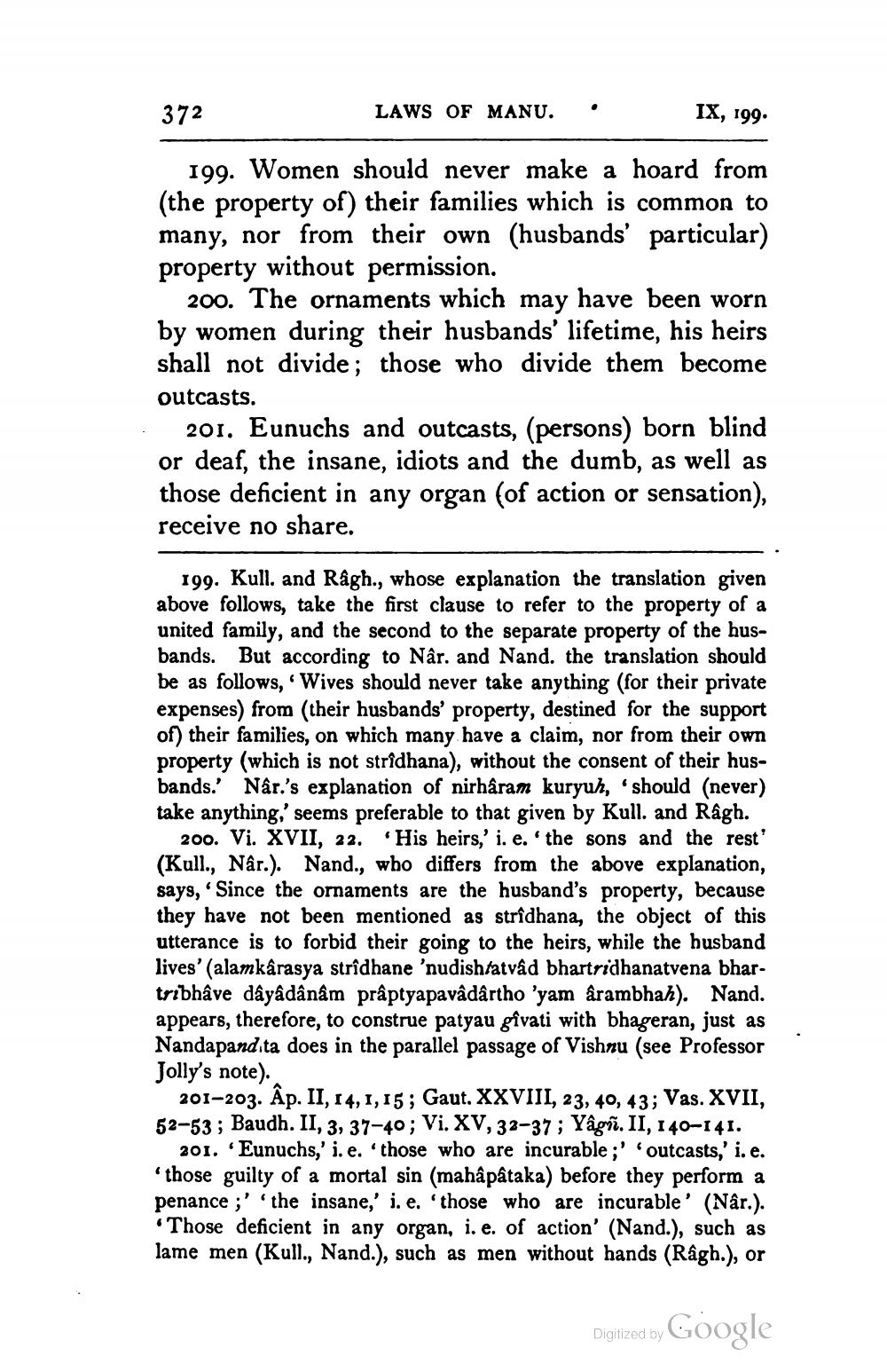________________
372
LAWS OF MANU. .
IX, 199.
199. Women should never make a hoard from (the property of) their families which is common to many, nor from their own (husbands' particular) property without permission.
200. The ornaments which may have been worn by women during their husbands' lifetime, his heirs shall not divide; those who divide them become outcasts.
201. Eunuchs and outcasts, (persons) born blind or deaf, the insane, idiots and the dumb, as well as those deficient in any organ (of action or sensation), receive no share.
199. Kull. and Rågh., whose explanation the translation given above follows, take the first clause to refer to the property of a united family, and the second to the separate property of the husbands. But according to Nâr. and Nand. the translation should be as follows, 'Wives should never take anything (for their private expenses) from their husbands' property, destined for the support of) their families, on which many have a claim, nor from their own property (which is not stridhana), without the consent of their husbands.' Nar.'s explanation of nirhâram kuryuh, should never) take anything,' seems preferable to that given by Kull. and Ragh.
200. Vi. XVII, 22. "His heirs,' i. e. the sons and the rest' (Kull., Nâr.). Nand., who differs from the above explanation, says, 'Since the ornaments are the husband's property, because they have not been mentioned as strîdhana, the object of this utterance is to forbid their going to the heirs, while the husband lives' (alamkârasya stridhane 'nudishtatvad bhartridhanatvena bhartribhâve dâyâdânâm prâptyapavâdârtho 'yam árambhah). Nand. appears, therefore, to construe patyau gîvati with bhageran, just as Nandapandita does in the parallel passage of Vishnu (see Professor Jolly's note).
201–203. Âp. II, 14,1,15; Gaut. XXVIII, 23, 40, 43; Vas. XVII, 52-53 ; Baudh. II, 3, 37-40; Vi. XV, 33-37; Yâgít. II, 140-141.
201. 'Eunuchs,' i.e. those who are incurable ;' 'outcasts,' i.e. 'those guilty of a mortal sin (mahâpâtaka) before they perform a penance ;' 'the insane,' i. e. 'those who are incurable' (Nar.). "Those deficient in any organ, i. e. of action' (Nand.), such as lame men (Kull., Nand.), such as men without hands (Râgh.), or
Digitized by Google




